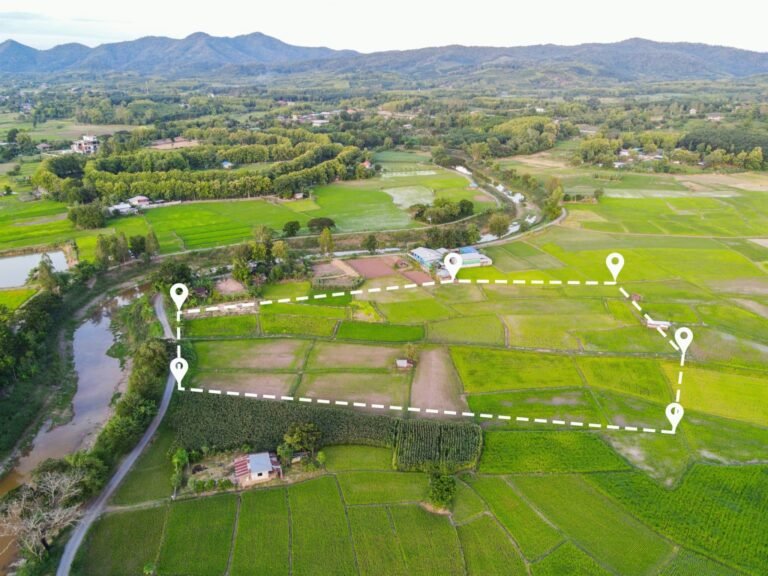Are you in search of the perfect location to establish your business? If so, investing in commercial land might be the ideal solution for you. While commercial land can come with a hefty price tag, the benefits it offers for your business can outweigh the initial costs.
In this comprehensive guide, we will delve into the process of purchasing commercial land and highlight key considerations you need to keep in mind before finalizing your purchase. Let’s dive into the essential factors to consider when buying commercial land:
- Selecting the Right Location
Choosing the perfect location for your business is paramount. You need to ensure that the commercial land you select is not only spacious enough to cater to your business needs but also zoned appropriately for commercial activities.Utilizing online listing platforms like MyEListing.com can streamline your search and help you identify suitable properties quickly. Factors to consider when selecting a location include the lot size, zoning regulations, traffic flow, parking availability, utilities, cost, and proximity to other businesses and potential customers.
- Assessing the Condition of the Land
Before making a purchase, it is crucial to evaluate the condition of the land. Look out for any potential issues that may require repairs or improvements, such as stability, susceptibility to natural disasters, contamination, or any restrictions like easements or rights of way.Engaging a professional land surveyor to conduct a thorough assessment can provide valuable insights into the land’s condition and help you make an informed decision.
- Determining the Market Value
Commercial land typically holds higher value compared to residential properties due to its potential for commercial use. When assessing the market value, consider whether the land is developed or undeveloped. Developed land, equipped with essential infrastructure, tends to be pricier but offers greater ROI potential. On the other hand, undeveloped land may require additional investment for development but could present growth opportunities at a lower initial cost.Factors influencing market value include location, zoning regulations, property size, accessibility, topography, and existing infrastructure.
- Understanding Zoning Regulations
Zoning regulations dictate how commercial land can be utilized and developed. It is essential to ensure that the land’s zoning aligns with your business requirements. Common zoning categories include retail, office, and industrial zoning, each catering to specific business activities.Verify the property’s zoning with local authorities to avoid any conflicts and explore options for rezoning if necessary.
- Parking Space Considerations
Adequate parking space is vital for accommodating customers, complying with regulations, and providing employee parking. Assess whether the land can accommodate the required number of parking spots and factor in costs for paving, striping, signage, and lighting if additional parking is needed.Inadequate parking space can pose challenges and incur extra expenses, so thorough planning is essential to ensure operational efficiency.
- Neighborhood Evaluation
Understanding your neighbors and the surrounding businesses is crucial when purchasing commercial land. Ensure that neighboring businesses complement your operations and avoid potential nuisances like noise or pollution that could impact your business.Conducting site visits at different times of the day and engaging with local residents and businesses can provide valuable insights into the neighborhood dynamics.
- Future Expansion Possibilities
Anticipating future growth and expansion is essential when buying commercial land. Assess whether the land allows for potential expansion to accommodate your business’s evolving needs. Research zoning regulations to determine expansion possibilities and evaluate upfront and future investment requirements for expansion projects.By considering these factors and conducting thorough research, you can make an informed decision when purchasing commercial land for your business. Finding the right property tailored to your business needs can set the foundation for long-term success.
We hope this guide has provided valuable insights into buying commercial land for your business. If you have any questions or require further assistance, feel free to reach out to us in the comments section below.
Frequently Asked Questions
Q: How do I go about buying commercial land?
A: Look for a suitable location, verify zoning regulations, assess parking space availability, and research neighboring businesses.Q: What considerations should I keep in mind when buying commercial land?
A: Factors to consider include property size, proximity to businesses and customers, land condition, and market value.Q: How can I confirm if a piece of commercial land is zoned correctly?
A: Contact your local municipality or planning department to verify the property’s zoning regulations.Q: What defines commercial land?
A: Commercial land is designated for specific business use and includes activities like retail or office operations.Q: What is the typical cost of commercial land?
A: Commercial land prices vary based on location, size, and land condition.Q: Can a house be built on commercial land?
A: It depends on the land’s zoning regulations, which can be determined by consulting local authorities.Q: Is a parking lot considered commercial property?
A: Yes, parking lots are generally classified as commercial property.In conclusion, buying commercial land requires careful consideration of various factors to ensure the property aligns with your business goals and requirements. By conducting thorough due diligence and seeking expert guidance, you can secure the perfect commercial land for your business ventures.

